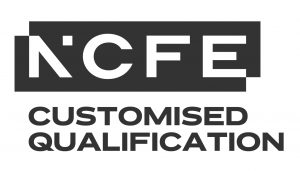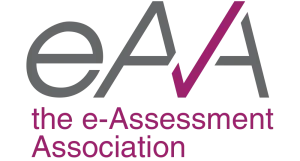
Start your career in optics here with this level 2 course and qualification. Suitable for anyone working in the optical sector, from receptionists to optical assistants, customer support staff to sales reps.
Level 2 Qualification for Optical Assistants
This qualification in supporting optical practice is designed for staff working within optics who do not have a registerable qualification. Whether you work in retail optics, manufacturing, sales or technical support.
There are eight units in total to choose from – details are at the bottom of the page.
Testimonial – Sarah
Doing the level 2 qualification helped me to feel more confident at work, as I knew I had the information in my brain to answer customer questions
Testimonial – Rohil
Although I have been in optics for 4 years I still learnt a lot from the course. The tutor support helped me when I had a problem
KEy Information
Qualification
Certificate (any 4 units)
Diploma (all 8 units)
100% online
Endorsed qualification by NCFE
About the course
This Level 2 qualification covers all of the foundation knowledge that support staff need in practice to be confident and successful in their role, thereby delivering excellent customer service. With 8 units to choose from, you can tailor the course to individual job roles, for example, do they undertake pre-screening? Are they involved in dispensing?
The course is delivered online using our learning platform which breaks the units down into bite-sized chunks to learn each week with activities to complete to check your understanding. A full colour course manual is also provided to enhance the online material. At the end of each unit there is an assignment to complete which is marked by a personal tutor and is an important part of the course as it prepares you for the online test.
Duration
Average 2-3 hours a weeK
Each unit takes 6-8 weeks
Certificate 100 guided learning hours (6-7 months)
Diploma 200 guided learning hours (12-14 months)
Course start date options
2nd MArch 2026
4th May 2026
The application deadline is 7 days before the start date to allow time for manuals to arrive
costs (2025)
Certificate £880
Diploma £1400
Other information about the course
Assessment Methods
The course is assessed via an end of unit assignment that is submitted online and marked by the personal tutor. This covers key elements of the unit and the feedback is provided to help the learner develop.
There is also a short (30 minute) online test which can be taken in the workplace.
The pass mark is 50%
Entry requirements
This Level 2 course has no educational entry requirements. However, the student does need to be employed full-time or part-time in an optical practice, glazing lab or hospital clinic.
About each of the Units
This unit reviews the range of professions and optical bodies in the optical world, with an emphasis on the functions of the General Optical Council. Focus is also given to the NHS provision for optics and General Ophthalmic Services (GOS). An essential unit for anybody new to the world of optics.
Your learning goals:
- Understand the different professions in optics
- Understand the different bodies involved in optics
- The NHS and optics
Excellent communication skills are essential if you are to provide great customer service. This unit covers areas of verbal communication, written communication, body language and active listening, questioning techniques, and how to handle different types of customers. Ideal for somebody who has limited experience in customer service.
Your learning goals:
- Understand oral communication
- Understand written communication
- Understand how to communicate with different types of customers
This unit begins by looking at the main parts of the eye, their structure, and their functions. This is followed by an explanation of emmetropia and the different types of ametropia (including astigmatism and presbyopia). The components of the spectacle prescription are then explained, before the final section of the unit, which gives an understanding of the big four causes of visual impairment and their management (glaucoma, cataract, diabetic eye disease and Age-Related Macular Degeneration). This unit is recommended for anyone who is in a patient-facing role where patients may ask questions.
Your learning goals:
- Understand the anatomical structures of the eye and their functions
- Understand common refractive errors
- Understand the components of a spectacle prescription
- Understand common eye conditions
This unit examines the customer journey, from their first point of contact, booking an appointment, NHS GOS rules, the day of their eye examination, all the way through to when the customer collects their new spectacles from the practice. This will give anybody new to optics a good understanding of all of the stages of the customer journey.
Your learning goals:
- Understand the appointment booking process
- Understand customer entitlements to NHS services in optics
- Understand the eye examination, ordering and production processes
- Understand order receipt, checking and the collection process
There is a wide range of frame types, materials, styles and price points in every optical practice. This unit looks at key aspects of spectacle frames, such as the features, benefits, and limitations of different frame materials, how frames can be manufactured and coloured, the correct terminology for frames, understanding frame measurements, with the final section reviewing how to help customers select eyewear based on their facial features, face shape, colouring etc. A very useful unit for anyone who is involved in frame selecting or adjusting frames.
Your learning goals:
- Understand the materials used to produce spectacle frames
- Understand the methods used to manufacture spectacle frames
- Understand spectacle frame components
- Understand how to be able to help customers choose eyewear
Gain an understanding of the wide range of lens options available by studying this unit. The first section looks at how lenses work, their form and the benefits of aspheric lenses. There is then an in-depth section on the correction of presbyopia, which covers the features, benefits and limitations of bifocal, trifocal, progressive and occupational lenses. The unit then considers the properties of different lens materials, with the final section being dedicated to the important lens measurements that are required to place a spectacle order. A real must of any optical assistant or dispenser.
Your learning goals:
- Understand the principles of spectacle lenses
- Understand multifocal lenses
- Understand spectacle lens manufacture
- Understand the measurements necessary for dispensing spectacle lenses
Boost confidence with contact lenses by studying this unit. The sections of this unit cover the different types of contact lenses, the materials used to manufacture contact lenses, different wearing modalities, and replacement frequencies, and finally, the proper care of contact lenses and a description of contact lens aftercare. The knowledge covered in this unit can be further developed by studying the follow-on level 3 contact lens unit.
Your learning goals:
- Understand the design of contact lenses
- Understand contact lens materials
- Understand the frequency of contact lens replacements
- Understand how patients should look after their contact lenses
A very useful unit for any optical assistant carrying our screening in optical practice, or in a hospital setting. The unit looks at the main screening tests carried out, such as tonometry, visual field testing, auto-refraction, fundus photography, and OCT. The principles behind the test and tips on how to obtain the best results are covered for each test. The knowledge covered in this unit can be further developed by studying the follow-on level 3 optical screening unit.
Your learning goals:
- Understand the measuring of intra ocular pressure in optical practice
- Understand the measuring of the visual field in optical practice
- Understand the use of auto-refraction in optical practice
- Understand the imaging of the fundus in optical practice
- Understand the use of coherence tomography (OCT) in optical practice
Examinations
In order to achieve a qualification for this course you will need to pass the examinations.
All of our examinations are carried out online in your workplace. You will need to take an examination for each unit you have studied and these will be done once you have completed the coursework for each unit. Each examination will take around 30 minutes to complete and will consist of a series of short answer questions.
The pass mark for each unit is 50% and you can resit any units you do not pass (a fee of £40 will apply for each unit resit)
Once you have achieved a pass in all your units you will receive a certificate from NCFE.
You can find out more about our examinations, find application forms, our policy documents here.


